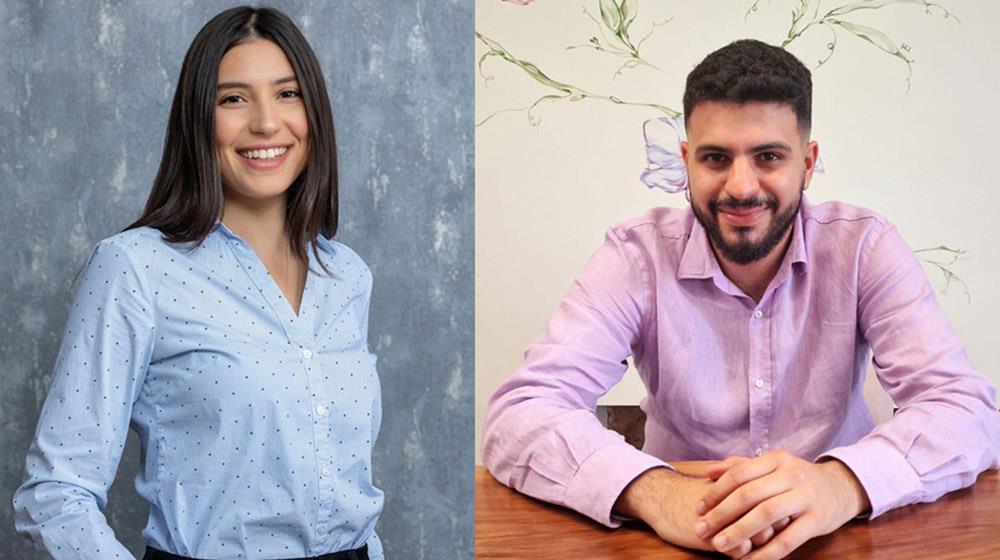Evangelia Psara, Operations & Quality Manager, and Nicolas Theophylactou, Business Administrator of N.Psaras Construction Co Ltd, analyse the company's objectives in creating an ESG business model that will serve as a sustainability benchmark both within and beyond Cyprus.
They also provide an assessment of the future for businesses that fail to embrace sustainable development, highlighting the importance of staying on track and not missing out on the opportunities it presents.
What is your vision for the sustainable development of your company and Cypriot entrepreneurship?
Evangelia Psara: Our company, recognising the complex challenge of the climate crisis, has begun recording ESG (Environmental, Social and Governance) criteria in its business operations. Through the ESG criteria, we have set sustainable development goals regarding the environment, society, and corporate governance.
Our vision is to create a business model beyond the Cypriot borders based on the principles of sustainability by adopting to the UN 2015 directive and the European Green Deal and by ensuring long-term efficient use of our natural, human, and financial resources.
Our business strategy through ESG is our corporate transformation on sustainability strategies, circular economy, and digital transformation, always prioritising on human rights and the society.
We believe that tackling climate change should be a key pillar of every company's development strategy with the aim of reducing carbon footprint by 2030 and Net-Zero emissions by 2050.
Which ESG strategies, politics and practices do you implement or will develop?
Evangelia Psara: The strategy we follow is based on our business activity which is private sector construction both in Cyprus and abroad.
Our commitment through a comprehensive ESG policy is the transparency of our activities, and through the circular economy, the use of renewable energy sources and other activities to tackle climate change for a better future for generations to come.
We are proud of the fact that since 1996 we have been collecting aluminium cans at our construction sites, which are received by the non-profit organisation "Cans for Kids" (www.cansforkids.org). Until today, we have managed to help society through recycling which became a culture in our company not only on our construction sites, but also in our offices.
Furthermore, we have a strict policy regarding the proper management of waste from our projects with continuous training of our staff and subcontractors in environmental management issues because we believe that climate change will affect the planet drastically. That is why each one of us and we as a company have an obligation to do our part for a better future for the next generations.
What can you tell us about the company's Plans for the future: ESG Sustainability Transformation Journey?
Nicolas Theophylactou: The future belongs to the green transition and our plan for this transition is part of our company's integrated strategic planning for 2020-2030. In addition to strengthening the company financially, which should no longer be the primary goal for any company, we have set high goals for the protection of the environment with responsible business practices. Our contribution to society, the policy of equality regardless of color or gender and in general the well-being of the people has become our main priority.
Companies certainly need to be profitable but at the same time they now have a responsibility, with good practices and policies to contribute to reducing their emissions resulting from their activities, to use the circular economy to the maximum extent for a sustainable development to deal with climate change.
The replacement of our fleet of all cars with electric cars is one of our future plans, having already started with hybrids. The transition to electric mobility can be achieved through a combination of multiple factors that directly affect the transportation strategy. In this way we reduce air pollution.
We are also moving rapidly to install photovoltaics on all our construction site offices, which store the energy in a battery and thus achieve zero energy consumption, with the aim of charging our employees' electric cars in the near future.
Through our ESG strategic plan we are in the process of appointing an external environmental consultant to help us join the global sustainable development initiative CDP (Climatic Disclosure Project www.cdp.net/en). CDP is an international non-profit organisation that manages a global system of environmental disclosures. Through our CDP registration and with the help of our environmental consultant, we set and refine our targets in order to better understand and monitor the impact of our activities over the coming years.
How do these practices and policies add value to the company but also to all interested parties (customers, employees, society, etc.)?
Nicolas Theophylactou: All the aforementioned practices/policies which made us redefine our goals in the face of the upcoming climate change certainly add to the value of the company and consequently to our employees, our customers and society in general.
A modern company, especially in the construction sector, must have proper management of construction waste as well as training procedures not only to its staff but also to its subcontractors in matters of environmental sensitivity and management.
Those companies that miss the train of sustainable development will see their company value decrease, while the value of companies with high indicators in their green policy will see their values take off. The need to evolve is inevitable, to be resilient to future changes affecting the environment and society and to create increased social value.
Psaras Construction, with its people as its driving force, looks to the future with optimism, aiming through sustainable development to remain competitive over time and environmentally and socially responsible.









